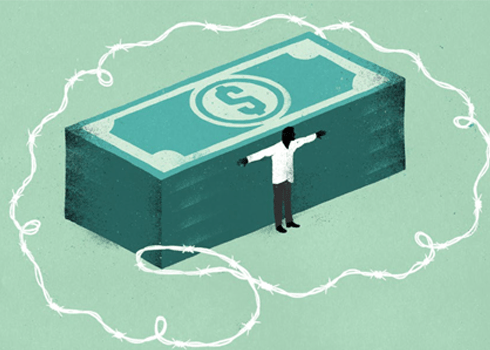After the holidays, many of us may start to feel rising anxiety about money. It’s not just presents we spend on; it’s food, drinks, decorations, donations to charity, flights to see family.
Taking a mindful approach to spending can help you focus less on the money you’re spending, and more on the experiences you’re gaining—so you can stop worrying you spent too much, and truly appreciate your holiday.
Mindful spending begs you to consider each dollar you spend an extension of your personal values, creating an individual economy that centers on what you love, and not what society tells you you have to have.
Mindful spending begs you to consider each dollar you spend an extension of your personal values, creating an individual economy that centers on what you love, and not what society tells you you have to have.
It means choosing not to spend money at all sometimes, choosing to spend more on high-quality, well-crafted items that support your community, and choosing to spend less on items that commercialism has put an unnecessary price tag on.
Mindful spending means buying handmade or local when appropriate. It means supporting fair industry practices around the world.
How to Be Mindful of Your Spending
Using your money in a conscious way, and not just spending when it feels good, requires some out-of-the box thinking. It’s not what we’ve been told to do. But being mindful of where your money goes benefits you (and society) in unimaginable ways.
- Try to spend more locally. According to the 3/50 project, $68 dollars of every $100 spent locally stays in the local community “through taxes, payroll, and other expenditures.” Find ways to buy from an independent locally-owned brick & mortar store.
- Buy from a maker. If you buy directly from a maker or service provider, you’re supporting someone’s passion and, a lot of the time, their families, too.
- Make a money map. It’s too easy these days to get out of control with our spending habits or lose focus on budget priorities. This 3-tier money map helps you keep your spending priorities in check.
- Check in with your body before you spend. Our bodies hold a lot of information. If you take a moment to check in and get present you’ll make more informed money decisions.
- Tame your money shame. If money is a source of anxiety for you, no matter your budget, name your pain and explore your past and present relationship with money with these tips from financial therapist Barri Tessler. Shame thrives in the dark and finances are complicated matters—There’s a lot of healing in speaking the truth about money.
When you’re mindful of your spending, you’re supporting yourself with your money.
read more
A Body Check-In Practice for Money Decisions
The next time you’re about to have a conversation about money, use this practice to find balance.
Read More
Crazy, Stupid Money
Just glimpsing a wad of cash can make us anxious, selfish, paranoid, and even a little crazy, Sharon Begley writes.
Read More










